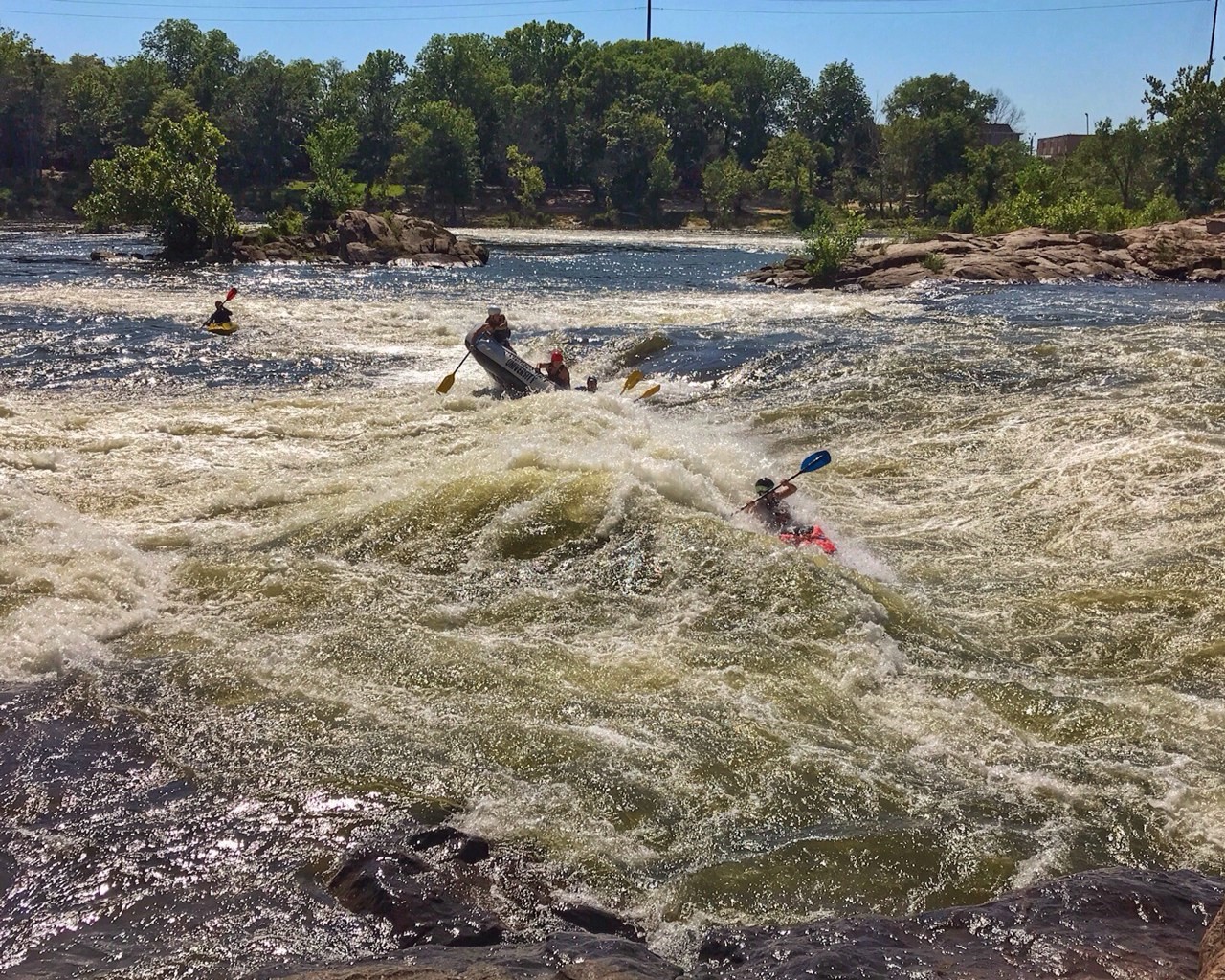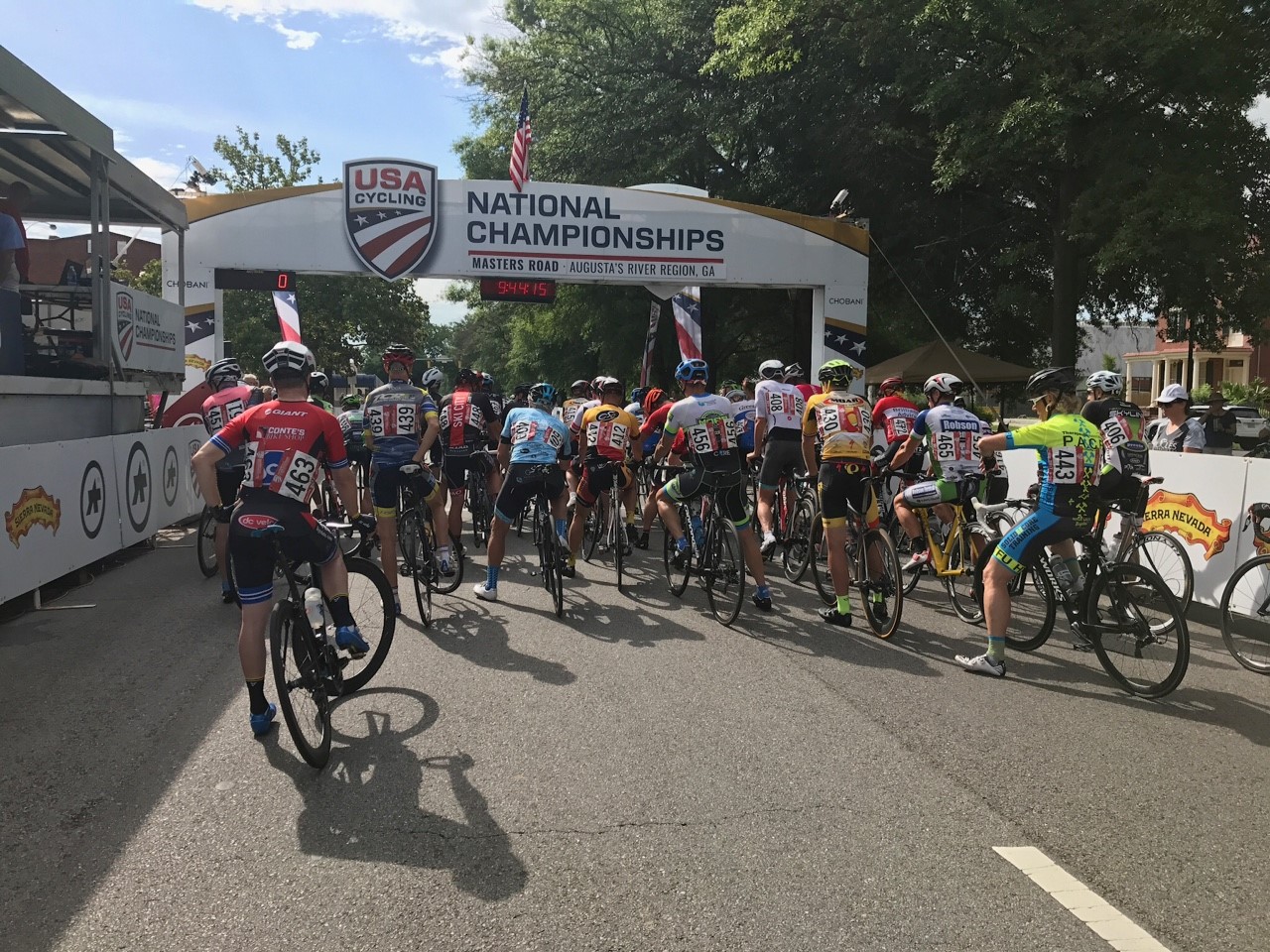-
- tel 205.453.4544
Blogs
The National Association of Sports Commissions (NASC) offers regular event leads for communities searching for event hosting opportunities. Every industry pro I know peruses the lists when they come through email. It’s especially useful for finding national championships as well as events looking for regional homes.
If you’re willing to put in the legwork to establish the relationships, there’s an even deeper source close to home, your local sports groups or Local Sports Bodies (LSB). Recreation facility managers, event promoters, sports club representatives, and race directors are an excellent source for sports development opportunities. From AAU basketball and USSSA baseball tournaments to road races, these events are often silent economic engines.
If your DMO wants to include sports tourism in your marketing and product development plan, consider taking some time to get to know the locals. You’re probably sitting on a goldmine. At minimum you should have a database of all local sports groups and facilities. Keep in regular contact through email and be sure to get their tournament schedules and inquire about new opportunities.
Relationships with your LSB’s can extend beyond being a lead source. Representatives from groups and facilities are an excellent source of knowledge. If you’re a small tourism agency or don’t “speak the language” of sports, don’t fret. There is probably a soccer club representative or a trail race promoter nearby who can educate you on the particulars of their sport. This will come in handy when you up your efforts, and it will allow you to be a better, and more educated, host partner.
Your willingness to collaborate on events can also have another tangible effect. Youth teams and sports clubs are a great source for volunteers. By securing the room block or getting comp rooms for the local club’s annual soccer tournament, you may have found road marshals for the 10K. Many youth teams and clubs seek out volunteer opportunities. Maintaining relationships with the locals can expand your volunteer roster.
It would be ideal if there was some magical all-encompassing list of every event looking for a home, but alas there’s not. Every community is different, and one size definitely does not fit all. Take some time to do research close to home. Find out who host races and who runs tournaments, and plan to keep in regular contact. These new friends will appreciate your support, and your local economy will appreciate the boost.
There has been a trend towards communities across the country building large multi-sport complexes. The dual intent is to accommodate local league sports and to also use the facilities for hosting travel events to capture the sports tourism dollar. Municipalities with these venues may consider themselves fortunate.
The facilities can be costly. However they are typically underwritten by SPLOST (Special Purpose Local Option Sales Tax) funds or some other funding mechanism that doesn’t entirely put the onus of financial responsibility wholly on the locals.
Not all communities have or can afford large facilities, but that doesn’t lessen the opportunity of drawing visitors for tournaments, competitions, or events. The advantage comes in having quality or unique venues that can be suitable for myriad sports ideas.
Thomson, Georgia, a rural community 30-miles west of Augusta, is an example of a community utilizing the quality of their facilities over the quantity to attract visitors. Sweet Water Sports Complex and the Thomson High School “Brickyard” football stadium offer excellent amenities for traditional sports. Not as visible, but no less important to the sports tourism cause are gems like Veterans Disc Golf Course at Sweet Water Park and Georgia’s Little River Water Trail. Disc golf and kayak fishing tournaments will work to great effect in this community. These tournaments appeal to a niche audience that will probably want to return for a visit even if they are not competing. The events aren’t typically huge, but large enough to have significant impact in a small town.
Supporting sports tourism is smart destination marketing. Even if a community doesn’t have a massive sports mega-complex, they still can attract this market. Every community has a unique asset that could be the next cool sports venue. It’s about being aware of what you have and going with what ya got. It really is that simple.
In his annual address at the 2017 Georgia Governor’s Tourism Conference, Kevin Langston, Deputy Commissioner of Tourism for the Georgia Department of Economic Development, stated that sports tourism and outdoor recreation were going to be major areas of focus for state marketing efforts in 2018. This was great news for communities who have long-used tournaments and events to attract visitors. Having additional support from the state to promote Georgia as a sports destination is excellent news. With the new year, it is also a perfect time for cities and counties who are considering implementing a sports development program to get the process going.
Sports events have been an excellent economic driver for the state of Georgia. Hosting major events like the Olympics, Super Bowl, The Masters, World Series, and the upcoming College Football Playoff National Championship have pumped billions into the statewide economy. Often less high profile, but every bit as important is the continual revenue stream of thousands of youth tournaments, cheer competitions, races, and challenges that push visitors into communities throughout the state annually.
Across Georgia, sports commissions and DMO sports planners have done an excellent job utilizing local assets for economic gain. This isn’t lost on state officials who recently released the Georgia Sports Planner. Georgia Sports, a statewide volunteer collective of destination sports recruiters, is also ramping up efforts, which can only be enhanced by state support. So, why now? Well, according to the National Association of Sports Commissions, the economic impact of sports tourism nationwide in 2016 was a staggering $10.47 Billion. In Georgia, the impact is being felt in cash registers across the state.
It shows in economic impact in Augusta where the Augusta Ironman 70.3 triathlon has generated a nearly $40 Million impact during its run. It also shows in development with sports-centered destinations like Lakepoint Sporting Community and the future Atlanta Sports Complex in Dekalb County. And it shows in events like the Albany Marathon, the Six Gap Ride in Dahlonega, the ACC Tennis Championships in Rome, and the upcoming 2018 ICF Dragon Boat World Championships at Lake Lanier. Communities see the value in hosting sports as a means to draw visitors.
Smaller towns may not have the traditional sports venues or the lodging capacity to host some “super-events,” but that doesn’t mean they should forego sports tourism efforts. With outdoor recreation also getting a push in Georgia marketing, municipalities with lakes, rivers, parks, and multi-use paths, have an opportunity to attach themselves to the state’s promotions. Athletes like natural venues. With the growing popularity of events like trail running and kayaking, communities with great natural resources have ample hosting opportunities. Any community committed to branding themselves as adventure and outdoors destinations will be in a great position this year.
Sports events are great economic drivers. Youth tournaments, races, and events put people in hotels and restaurants. Many communities across Georgia have active sports recruitment programs, and many more are getting into the swing. With the state taking a more active role in promoting sports tourism, the effect can only be positive. There are numerous event options for those who may think they don’t have the necessary venues. And events are a consistent means to boost visitors in non-peak seasons.
2018 is the year to ramp up efforts. Georgia is wide-open for opportunity. Due North Sports Partners looks forward to helping communities in Georgia, and beyond, be the best and most accommodating sports destinations they can be. This is an exciting time in this industry. Take advantage of it. Happy New Year!
May and early-June were intensive, but gratifying. I’m proud to say that I completed my coursework for Southeastern Tourism Society’s Marketing College in Dahlonega, Georgia on May 17. For any tourism professional who hasn’t attended, I highly recommend it. The instructors are the best minds in the tourism industry, and the classes will leave you informed and inspired. It’s also a great time to network and socialize with peers from across the region and beyond. The University of North Georgia is an excellent host to Marketing College, and having a few days to hangout in Dahlonega is always a great thing.
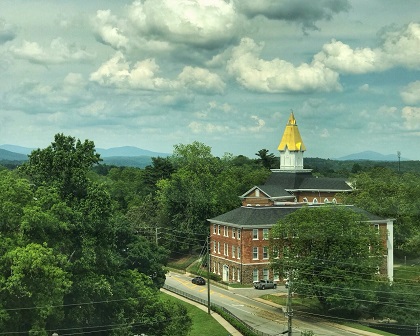
Following my last class, I had the honor of making a presentation on sports tourism to the Northeast Georgia Mountains Travel Association during their annual luncheon at the Smith House in Downtown Dahlonega. I’m grateful to my good friend, Jerry Brown, Executive Director of Alpine Helen-White County CVB, for inviting me to speak to the group. The reception I received was excellent, and the feedback has been quite positive. It was a perfect opportunity for Due North Sports Partners to speak before this esteemed group, and I’m excited about the new friendships made during this wonderful occasion.
In May, I also had the privilege of visiting several communities across South Georgia during a little Georgia sports road trip. Stops included LaGrange, Columbus, Bainbridge, Valdosta, and Macon. Each visit included a site tour of sports facilities, as well as great discussion on how these communities use sports to drive the local economy. I’m forever grateful to Jj Kuerzi (LaGrange), Merri Sherman (Columbus), Julie Harris (Bainbridge), Tim Riddle and George Page (Valdosta-Lowndes County), and Gary Wheat (Macon) for giving so freely of their time to show me around their great communities.
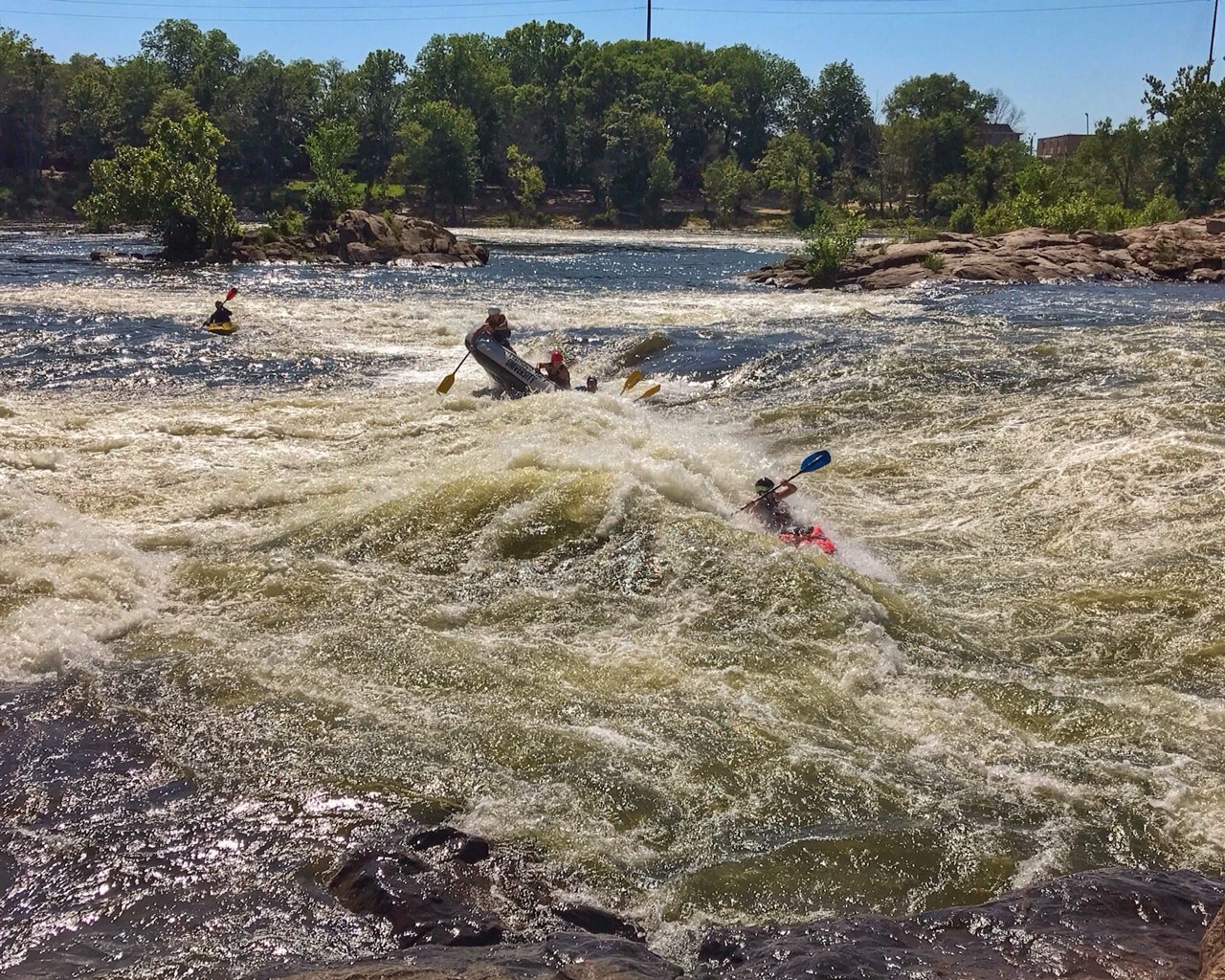
The thing that has stayed with me after two road trips is how widespread and energized the drive to move back to a town center is in Georgia. As a native, it’s really cool to see, and for the state’s tourism industry, it is reaping great benefits. Town squares and downtown locations are coming back alive and thriving with locally-owned businesses. Multi-use paths and greenspace are now the planning rule and not the exception. It is a beautiful thing to see.
It’s also prime season for the impact of sports. Every location I visited had tremendous resources and the desire to maximize them to the fullest. This is the second road trip I’ve taken to visit friends and peers who make sports happen in Georgia, and I’m impressed. This state has a lot to offer, and it has a passionate band of sports tourism warriors who are making it happen to the tune of tens, if not hundreds of millions of dollars annually to the statewide economy. It’s big.
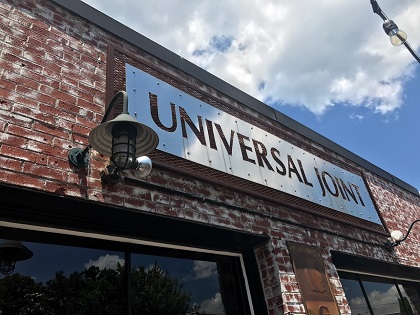
At the beginning of June I worked with USA Cycling and the Augusta River Region on the USA Cycling Masters Road National Championships in and around Augusta, Georgia. The feedback about the venues and the race have been very positive. Congratulations go to new USA Cycling National Events Manager, Shawn Brett, and the Augusta Sports Council for the event’s success. I was honored to be a part of it. Approximately 800 racers from 35 to 85 years of age competed in the four-day event. According to the Augusta CVB, the economic impact for the event exceeds $2 Million. That’s excellent. The cycling championship will return to Augusta in 2018. I’d like to give a shout-out to the US Army Corps of Engineers, Fort Gordon and Fort Gordon MWR, the city of Augusta, Columbia County, and McCormick County, South Carolina, and so many more for providing great venues and support. The riders appreciated it.
I’d be remiss if I didn’t include a big thank you to Teka Earnhardt of Explore Rabun for a great visit in Clayton, Georgia right after the bike races. North Georgia sings to me and those folks really have it going on. Rabun County will be the epicenter of the first total solar eclipse in 38 years on August 21, 2017. 10,000 visitors are expected to gather for the occasion. If they are smart, they will get a table for some post-eclipse eats at the Universal Joint on Main St. We had lunch there during our visit with Teka and it was great. You must make a plan to visit. The area is stunning. Thanks y’all!
Be sure to check us out. Go to: www.sportsstrategies.com. We are on Facebook at Due North Sports, Instagram @DueNorthSports, Twitter (barely) @DueNorth_Sports, and YouTube (Due North Sports Partners). Please check us out. Thanks for your time!


